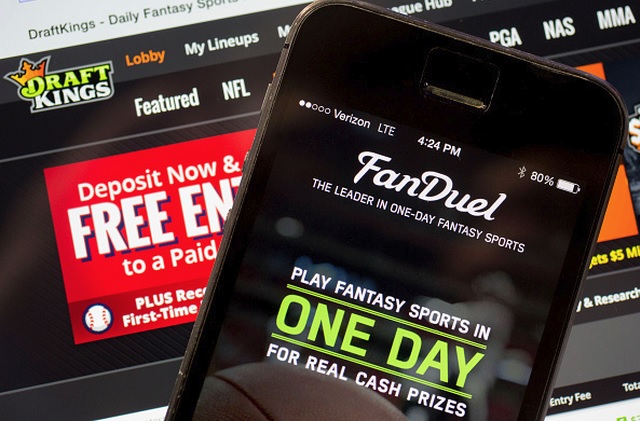As legalized sports betting continues to gain steam across the United States, gaining approval in more and more states (22 and counting), the discussion around who benefits most is at the top of people’s minds. Eventually, in-game betting should create more opportunities for pro sports franchises and their gambling partners. But in the meantime, as gambling platforms attempt to cement their place in the market, advertising spends are the biggest investment and no one is benefitting more from that than local TV stations and broadcasters.
Sportico recently reported that, per Nielsen ad-spend data, online sportsbooks and gambling sites dumped $153.6 million in ad buys into local stations during the first quarter of 2021. It’s no surprise that Fanduel and DraftKings led the way, with the former investing $57.7 million in local ads while the latter spent $43.6 million in the same way. Together, they account for 66% of the market’s local TV ad spend. BetMGM was the only competitor to match them in double-digit ad spends with $24.9 million. Other competitors in the space who dropped at least a few million in TV spots include BetRivers, Betfair, and PokerStars.
Comparatively, FanDuel and DraftKings combined for just $15.4 million in national TV spending, which also includes a $5.5 million Super Bowl LV ad for DraftKings. Given that sports wagering is yet to be legalized in the majority of states, it’s unlikely that we’ll see national spending rise in the short term.
So focused are these companies on local TV that spending there made up 78.4% of their total media spend. Digital ads accounted for 12.7%, national TV accounted for 3.7%, and radio accounted for just 2.2%.
Per Sportico, local spot TV spending is expected to grow to as much as $590 million as more states legalize sports betting and awareness grows in the states where it’s already legal. Another factor to consider is exclusive retail and mobile licenses, such as the one DraftKings has with New Hampshire. The deal means that DraftKings will share 51% of sports-betting revenues there with the state in return for the exclusivity.
The news has to be exciting for companies like Sinclair, who are taking a bath on RSNs as they rack up huge rights fees during a time when revenues are faltering. Knowing that sports betting companies will want to target their audience, coupled with whatever internal gambling promotions and partnerships they have in the works, could potentially be the future of their revenue stream. Plus, as local and national networks, not to mention the leagues themselves, increase their gambling-centric programming, that’s going to continue creating ideal environments for sports betting TV ad buys.
[Sportico]





